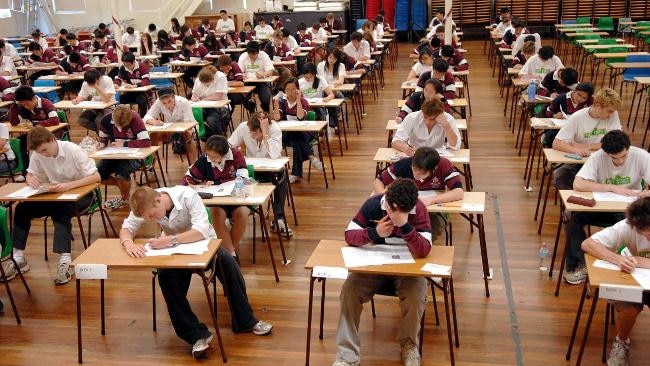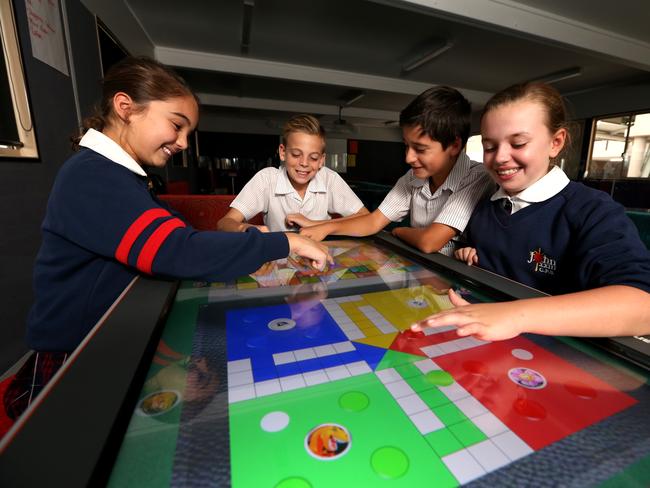Australian teens’ academic results in critical subjects are in free fall, new report reveals
AUSSIE teens’ plummeting performance in reading, maths and science is so serious it could affect the nation’s ability to compete for the next 50 years.

NSW
Don't miss out on the headlines from NSW. Followed categories will be added to My News.
AUSTRALIAN teenagers’ plummeting performance in critical subjects such as reading, mathematics and science is so serious it could affect the nation’s ability to compete globally for the next 50 years, a major new report reveals.
The research by the Australian Council for Educational Research (ACER), found 40,000 15-year-olds across Australia lacked the reading skills required for the workplace, while 57,000 were not up to scratch in maths.
It also said there had been a “long-term decline in the ability of 15-year-olds to apply what they are learning to everyday problems”. ACER said the performance of Australian students had been going backwards since the Sydney 2000 Olympics, while other countries had made substantial gains.
In maths, the top 10 per cent of Australian students now perform at the same level as the top 40 to 50 per cent of students in Singapore, South Korea and Chinese Taipei, the report says.
Between 2000 and 2012 Australian students’ reading literacy declined by 16 points and mathematical literacy by 29 points, while Germany increased its literacy level by 24 points.
Report author and ACER chief executive Professor Geoff Masters said: “It has been a steady decline and in maths it has been dramatic.
“We were one of the top countries in the world and now we are just average.
“The problem is not that Australia is standing still relative to other countries — we are actually going backwards. We ignore these warning signs at our peril.”
The report, Five Challenges In Australian School Education, also singles out growing disparities in performance between schools and a serious decline in the attractiveness of teaching as a career.
Prof Masters said a number of top performing countries had made high-quality teacher candidates a priority — South Korea and Finland drew from the top 10 per cent of academic achievers.
Too few students in Australia were prepared to do high-level maths and science and often teachers were not confident or prepared to teach the core subjects.
Prof Masters said Australia had “increased spending on schools and seen standards decline”.
The answer was to target resources on effective strategies, and he called for a national action plan. “The challenges we face require changes in policy,” he said. “We can’t keep doing what we have been doing and expect performances to improve.”
SCHOOLS ALREADY ON TO THE RIGHT FORMULA
Bruce McDougall
CATHOLIC schools across Sydney’s west are not waiting for a national plan to lift students’ results in reading, maths and science — they are already on the case.
Primary and secondary schools in the Parramatta education diocese have engaged some of Australia’s top experts in science, mathematics and technology education in a bid to turn around the decline in the key disciplines.
K-12 maths and science project leader in the diocese Paul Stenning said schools were working with Prof Peter Sullivan of Monash University to ramp up the “amount of challenge in maths” provided to students.

“We find our data no different to the rest of the state with falling numbers of students doing extension one and extension two courses in maths for the HSC,” Mr Stenning said. “We are working on it as hard as possible.”
Mr Stenning said the drive to improve maths and science started in primary school around Year 5 and Year 6 and a lot of work was done in the early years of high school.
“We are providing professional learning for our teachers to ensure higher expectations for students,” he said.
“They are working on maths skills and taking them to the next level.”


